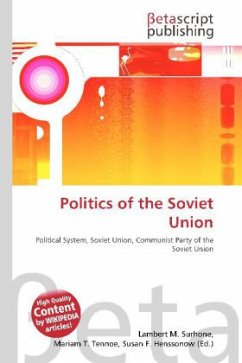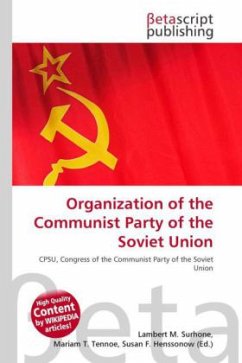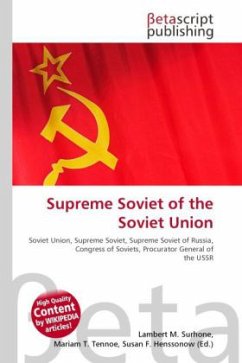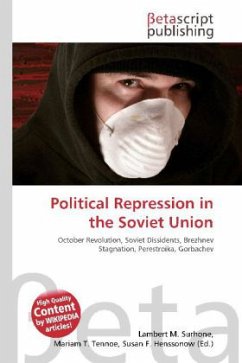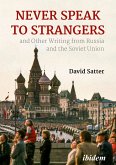Please note that the content of this book primarily consists of articles available from Wikipedia or other free sources online. The political system of the Soviet Union was characterized by the superior role of the Communist Party of the Soviet Union (CPSU), the only party permitted by Constitution. As authorized by Constitution, the Soviet government, called the Council of People''s Commissars until 1946 and the Council of Ministers of the USSR afterwards, executed decisions of CPSU pertaining primarily to economy but also to security affairs and social issues. Constitutionally highest organ of legislative authority was the Congress of Soviets until 1936 and the Supreme Soviet of the Soviet Union from 1936 to 1989. But it met only a few days annually, while its Presidium managed affairs throughout the year. The Bolsheviks who took power during the October Revolution, the final phase of the Russian Revolution, were the first Communist Party to take power and attempt to apply Marxism (to be more specific, the Leninist variant of Marxism) in a practical way.

